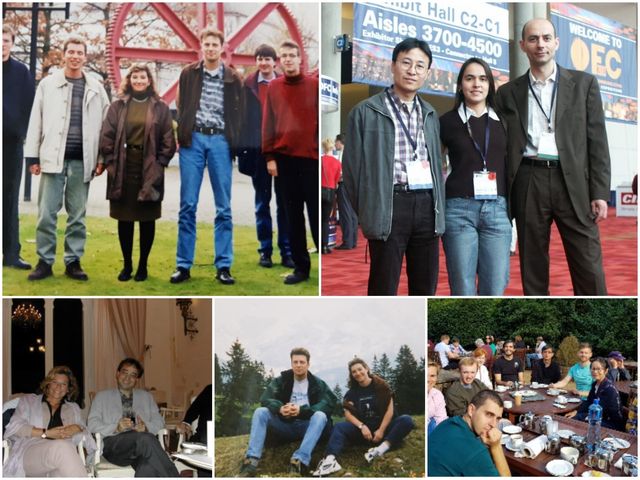
ONG turns 25! Join us to celebrate
25 years is a long, long time in the optical communications industry and - through tireless hours of hard work, dedication and determination – University College London's (UCL) Optical Networks Group (ONG) has remained at the heart of ground-breaking research in optical communications.
To celebrate, on 19 and 20 September 2019, the ONG will be hosting a two-day workshop with renowned speakers from across Engineering coming together to discuss and debate ‘Optical Networks-the next 25 years’. The event will see the UCL President & Provost, Professor Michael Arthur, open proceedings along with Head of ONG, Polina Bayvel.
Where it all began…
The Optical Networks Group was set up by Polina in 1994 when she returned to UCL, under a Royal Society University Research Fellowship, from the then BNR Laboratories in Harlow. The aim was to set up as the first “academic system engineering group”[1] . Initially viewed as an unrealistic goal by many, ONG has since become an internationally leading research group in optical communications and networks – with many ‘firsts’ in its 25 year history.
Over the last decade the research of the group has focused on developing new coherent technologies, now the basis of how almost all high-speed digital data is transmitted over optical networks. Much of their innovative work has been conducted under the EPSRC UNLOC programme grant (www.unloc.net) under which many records were set.
The UNLOC programme has been followed by another EPSRC programme grant – the £6million TRANSNET (www.transnet.org.uk), in collaboration with Aston and Cambridge Universities – with a research goal of transforming optical networks through intelligent transceivers and by introducing intelligence into optical networks using, amongst other techniques, machine learning.
Heartbeat of ONG
One of the greatest ONG achievements, and one that Polina is especially proud of, are its people. As Polina states:
"In developing the group, we have created a school of optical networks research. Our members are deeply talented, clever, dedicated, creative, funny and quirky individuals and are loyal to the group. Entering the group as new PhD students, they leave as leaders in their field."
The ONG has become a large, international family, spread all over the world. Members of the group, former students postdocs and visitors, known as ‘ONGers’ are now working in leading academic and industrial research labs all over the world, developing next-generation communications systems and networks, transforming the networks of tomorrow.
Polina is particularly grateful to the Royal Society and the EPSRC who have supported the research of the group as well as generous support and advice of so many colleagues, many joining the celebrations at the 2-day workshop organised by Polina Bayvel and a former ONGer, Dr Ben Puttnam, now in NICT, Japan.
And to what the future holds?
Polina hopes the group will continue to go from strength to strength, focusing on the optical networks needs for tomorrow, bringing intelligence to network design, perhaps learning from another nonlinear network with memory – the brain – on how to generate, transmit, route and process information at the highest speeds possible, but with minimum delay and resources.
Registration and programme for the 2-day workshop
ong25.eventbrite.co.uk – lunch and refreshments will be provided across both days.
Additional celebrations
We are also hosting a series of other exciting events to celebrate turning 25.
These include opening up the ONG lab (for the first time!) to the wider world for an official tour as part of UCL’s #ItsAllAcademicFestival, to a UCL lunchtime lecture asking ‘Why can't I sing with Australians on the telephone?" and other questions about engineering the Internet'. For more about these and the rest of our events and to register your attendance, click here.
All events are supported by the EPSRC TRANSNET Programme (www.transnet.org.uk), for our latest updates follow us on twitter: @transnet_pgm.
[1] http://www.newelectronics.co.uk/electronics-technology/maximising-the-potential-of-fibre-optic-communications/146167/